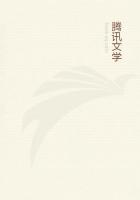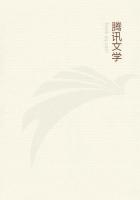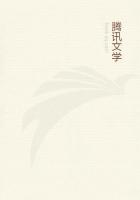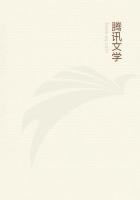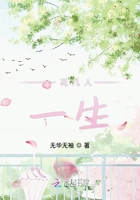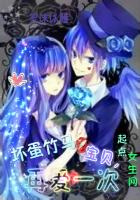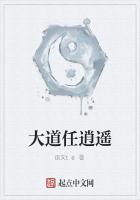I will here put together some of the particulars which make up the idea of home in the most emphatical sense of the word.
Home is the place where a man is principally at his ease. It is the place where he most breathes his native air: his lungs play without impediment; and every respiration brings a pure element, and a cheerful and gay frame of mind. Home is the place where he most easily accomplishes all his designs; he has his furniture and materials and the elements of his occupations entirely within his reach. Home is the place where he can be uninterrupted. He is in a castle which is his in full propriety. No unwelcome guests can intrude; no harsh sounds can disturb his contemplations; he is the master, and can command a silence equal to that of the tomb, whenever he pleases.
In this sense every man feels, while cribbed in a cabin of flesh, and shut up by the capricious and arbitrary injunctions of human communities, that he is not at home.
Another cause of our discontent is to be traced to the disparity of the two parts of which we are composed, the thinking principle, and the body in which it acts. The machine which constitutes the visible man, bears no proportion to our thoughts, our wishes and desires. Hence we are never satisfied; we always feel the want of something we have not; and this uneasiness is continually pushing us on to precipitate and abortive resolves.
I find in a book, entitled, Illustrations of Phrenology, by Sir George Mackenzie, Baronet, the following remark. 'If this portrait be correctly drawn, the right side does not quite agree with the left in the region of ideality. This dissimilarity may have produced something contradictory in the feelings of the person it represents, which he may have felt extremely annoying[7]." An observation of this sort may be urged with striking propriety as to the dissimilar attributes of the body and the thinking principle in man.
[7] The remark thus delivered is applied to the portrait of the author of the present volume.
It is perhaps thus that we are to account for a phenomenon, in itself sufficiently obvious, that our nature has within it a principle of boundless ambition, a desire to be something that we are not, a feeling that we are out of our place, and ought to be where we are not. This feeling produces in us quick and earnest sallies and goings forth of the mind, a restlessness of soul, and an aspiration after some object that we do not find ourselves able to chalk out and define.
Hence comes the practice of castle-building, and of engaging the soul in endless reveries and imaginations of something mysterious and unlike to what we behold in the scenes of sublunary life.
Many writers, having remarked this, have endeavoured to explain it from the doctrine of a preexistent state, and have said that, though we have no clear and distinct recollection of what happened to us previously to our being launched in our present condition, yet we have certain broken and imperfect conceptions, as if, when the tablet of the memory was cleared for the most part of the traces of what we had passed through in some other mode of being, there were a few characters that had escaped the diligence of the hand by which the rest had been obliterated.
It is this that, in less enlightened ages of the world, led men to engage so much of their thoughts upon supposed existences, which, though they might never become subject to our organs of vision, were yet conceived to be perpetually near us, fairies, ghosts, witches, demons and angels. Our ancestors often derived suggestions from these, were informed of things beyond the ken of ordinary faculties, were tempted to the commission of forbidden acts, or encouraged to proceed in the paths of virtue.
The most remarkable of these phenomena was that of necromancy, sorcery and magic. There were men who devoted themselves to "curious arts," and had books fraught with hidden knowledge.
They could "bedim The noon-tide sun, call forth the mutinous winds, And 'twixt the green sea and the azured vault Set roaring war: to the dread, rattling thunder They could give fire, and rift even Jove's stout oak With his own bolt--graves at their command Have waked their sleepers, oped and let them forth.
And of these things the actors in them were so certain, that many witches were led to the stake, their guilt being principally established on their own confessions. But the most memorable matters in the history of the black art, were the contracts which those who practised it not unfrequently entered into with the devil, that he should assist them by his supernatural power for ten or twenty years, and, in consideration of this aid, they consented to resign their souls into his possession, when the period of the contract was expired.
In the animal creation there are some species that may be tamed, and others whose wildness is irreclaimable. Horace says, that all men are mad: and no doubt mankind in general has one of the features of madness. In the ordinary current of our existence we are to a considerable degree rational and tractable. But we are not altogether safe. I may converse with a maniac for hours; he shall talk as soberly, and conduct himself with as much propriety, as any other of the species who has never been afflicted with his disease; but touch upon a particular string, and, before you are aware of it, he shall fly out into the wildest and most terrifying extravagances. Such, though in a greatly inferior degree, are the majority of human beings.
The original impulse of man is uncontrolableness. When the spirit of life first descends upon us, we desire and attempt to be as free as air. We are impatient of restraint. This is the period of the empire of will. There is a power within us that wars against the restraint of another. We are eager to follow our own impulses and caprices, and are with difficulty subjected to those who believe they best know how to control inexperienced youth in a way that shall tend to his ultimate advantage.

